Slide Layouts are a very useful
feature because they let you use a preset arrangement of placeholders repeatedly, resulting in consistent looking slides. And
yes, you can also create your own custom Slide
Layouts. While very few users create their own custom Slide Layouts, even fewer will create a custom Slide Layout for
pictures! That's regrettable since Picture Slide Layouts can make your slides look so unique. In this tutorial, we will show you
how easy it is to create your own Picture Slide Layout in PowerPoint 2016
for Mac:
- Launch PowerPoint and open a blank presentation with a new single slide.
- Now, access the Design tab of the
Ribbon, and from the
Themes drop-down gallery click any Theme. For this tutorial we
choose the Theme named Wisp, as shown highlighted in blue within
Figure 1. You can choose any other Theme as required.
-
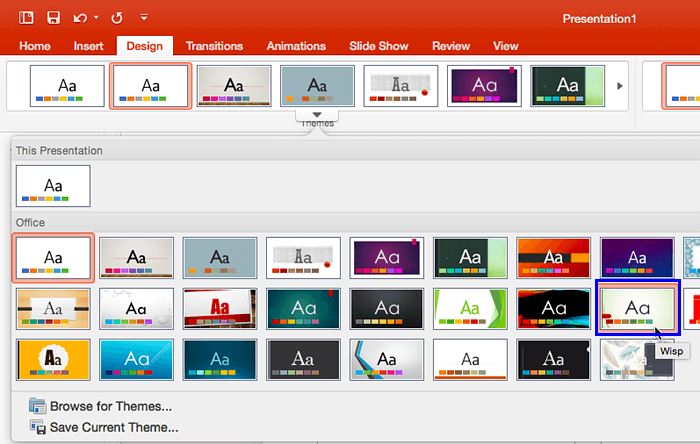
Figure 1: Themes drop-down gallery
- Within the Home tab of the Ribbon, click the Layout
button (highlighted in blue within Figure 2) to access the Layout
drop-down gallery, as shown in Figure 2. Now
change the layout of the active slide to
Picture with Caption, as shown highlighted in red within Figure 2.
-
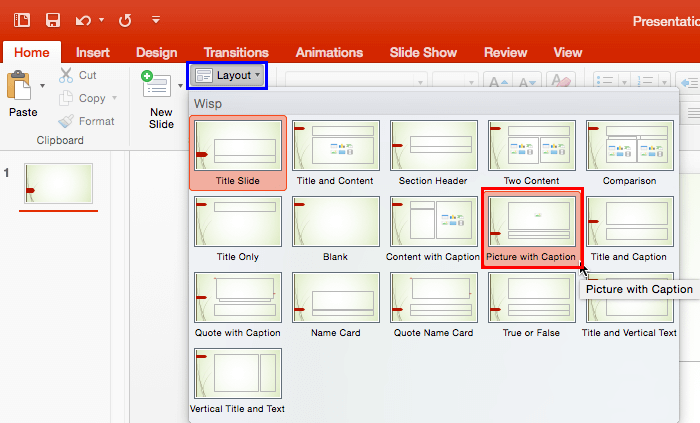
Figure 2: Layout drop-down gallery
- This changes the layout of your active slide to Picture with Caption, as shown in
Figure 3. Click the Pictures icon (highlighted in red
within Figure 3) within the Picture placeholder.
-
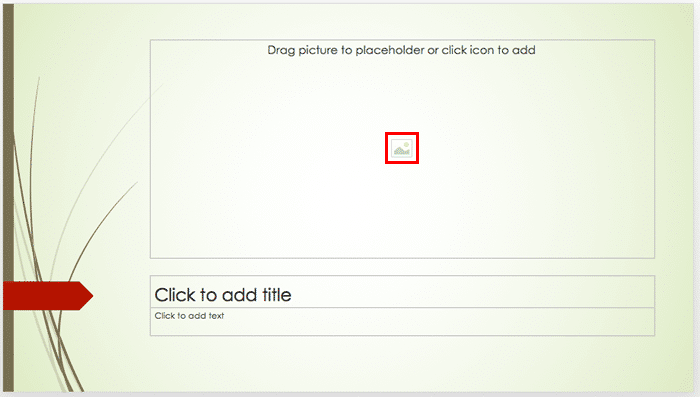
Figure 3: Pictures icon
- This brings up the Insert
Picture dialog box, as shown in Figure 4. Navigate to the folder where your pictures are located and select
any picture you need, and click the Insert button, as shown highlighted in red
within Figure 4.
-
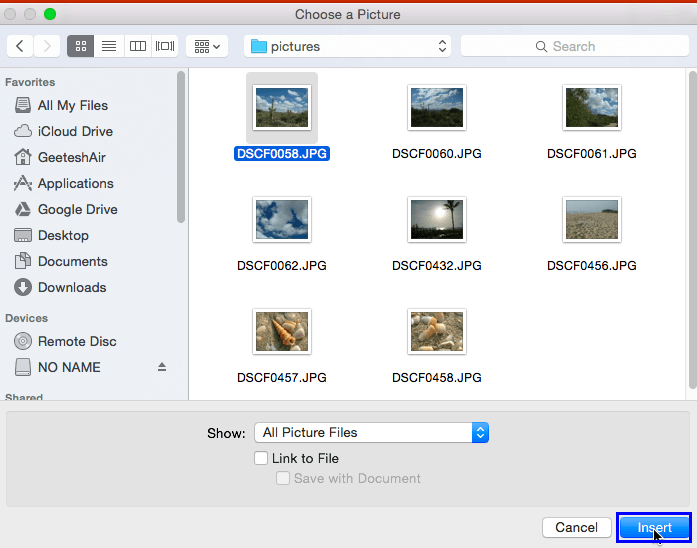
Figure 4: Insert Picture dialog box
- This adds the selected picture to your active slide, as shown in Figure 5, below. Note that the
appearance of your slide depends on the Theme you chose earlier in Step 2. You however are not limited to the
default Picture with Caption layout. We will next create our own customized Picture Slide Layout.
-
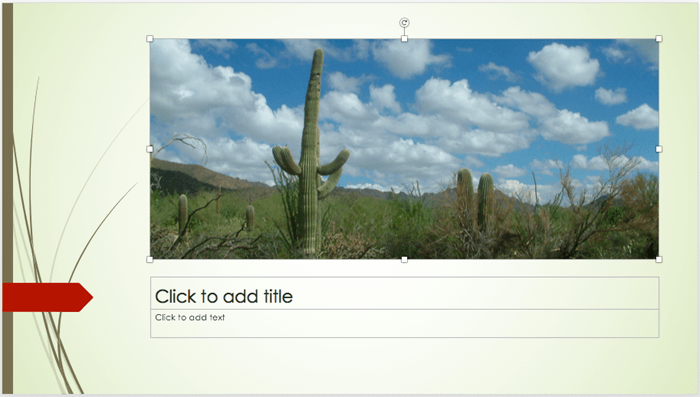
Figure 5: Picture inserted within the Picture placeholder
- To create your own Picture Slide Layout, access the View tab of the
Ribbon and click the
Slide Master button, as shown highlighted in red within Figure 6.
-

Figure 6: Slide Master button
- This opens Slide Master View. In
Figure 7, below you can see the Picture with Caption layout selected within the left
pane (indicated by the orange highlight) and the same Picture with Caption layout can be seen within the
Slide Area (highlighted in
blue).
-
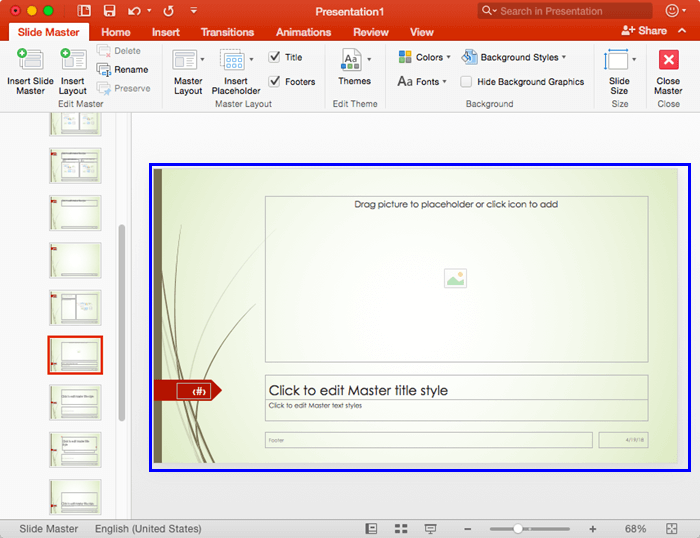
Figure 7: Slide Master view
- Now, make sure that the Picture with Caption layout thumbnail is selected within the
Slides Pane, as shown in Figure 8.
-
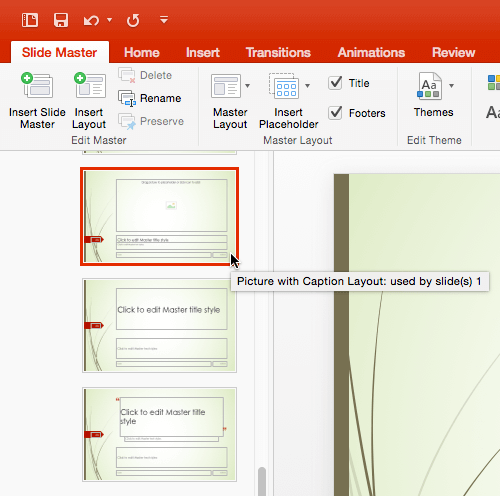
Figure 8: Picture with Caption layout selected
- Then, press the ⌘ + D keyboard shortcut to duplicate the
selected layout. This will create a copy of the Picture with Caption layout as you can see in
Figure 9 (the selected slide, and the slide above it). Then, right-click the duplicated
Picture with Caption layout, and from the contextual menu that appears choose the Rename
option, as shown in Figure 9.
-
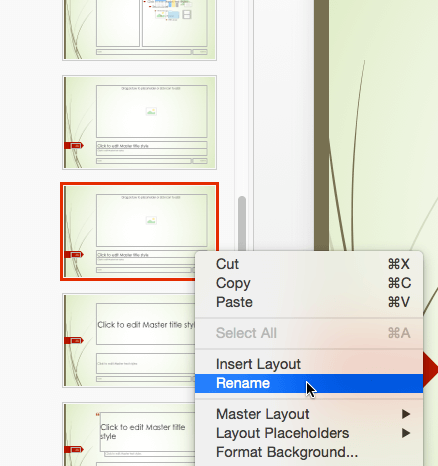
Figure 9: Rename option for the selected layout
- This brings up the Rename Layout dialog box, provide a descriptive name, and click the
Rename button. We named our new Picture layout as Four Pictures with Caption.
- Now, modify as required. You can
resize and
move the existing Picture
placeholder, or even add more Picture placeholders as explained in our
Insert Placeholders Within Slide
Layouts tutorial to end up with your own Picture Slide Layout, as shown in Figure 10, below (compare with
Figure 7, shown earlier on the page).
-
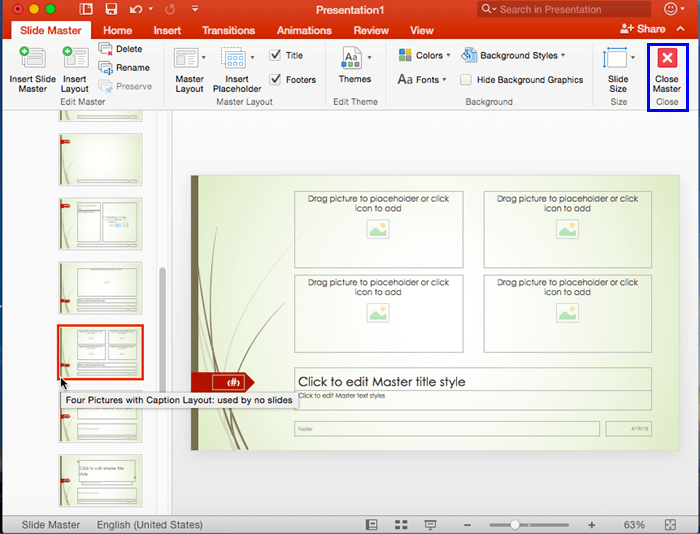
Figure 10: Customized Picture Slide Layout
Tip: You can also add more Picture placeholders by duplicating an existing Picture placeholder. To do this
select an existing Picture placeholder, press both the Option and Shift
keys and drag!
- When done, click the Close Master button (highlighted in blue
within Figure 10, above) within the Slide Master tab of the Ribbon to get
back to Normal View.
- You will see that your active slide still uses the original Picture with Caption layout, as you
saw in Figure 5, previously on this page. This needs to be now changed to the new layout we just created. To do
so, access the Home tab of the Ribbon and click the Layout button to bring up
the Layout drop-down gallery you see in Figure 11, below. Notice that your new layout shows up,
as shown highlighted in blue within Figure 11. Click on this thumbnail to change the
layout of the active slide.
-
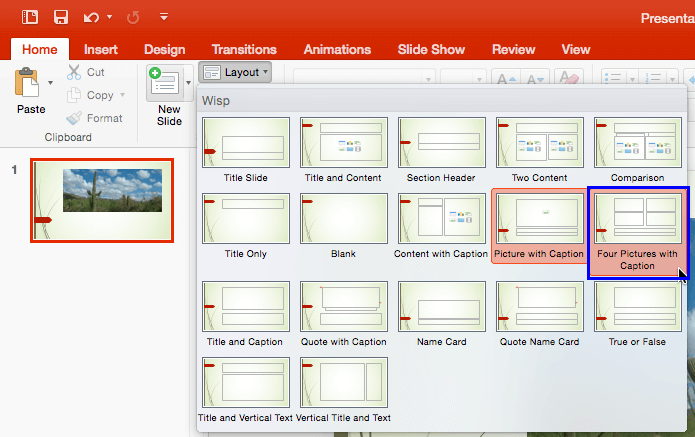
Figure 11: New Slide Layout within the Layout drop-down gallery
- You will now see extra Picture placeholders that are devoid of any pictures, as shown in Figure 12,
below.
-
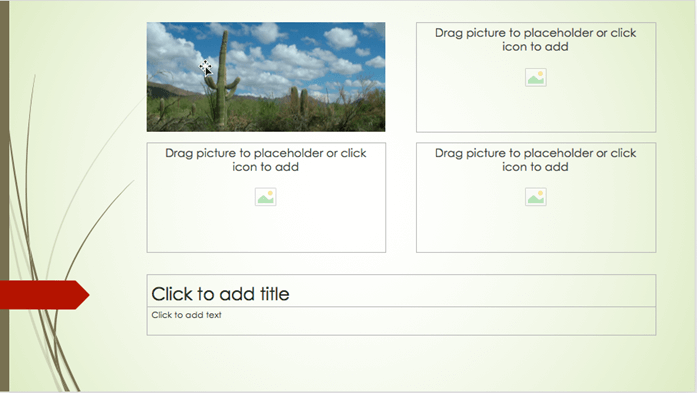
Figure 12: Extra Picture placeholders without pictures
- Add pictures to all extra Picture placeholders so that you end up with something similar to
Figure 13, below (compare with Figure 5, shown earlier on this page).
-
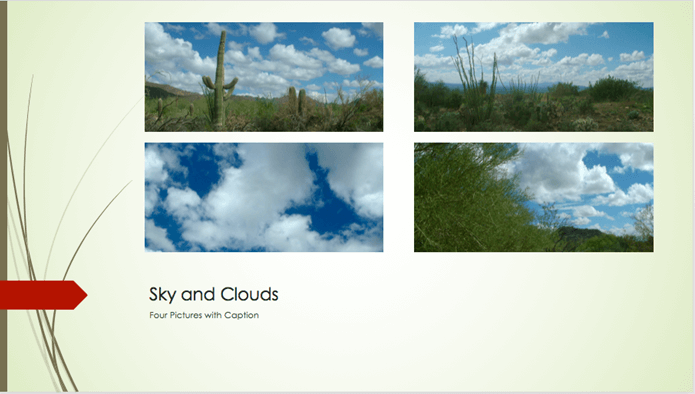
Figure 13: New Picture Slide Layout added with pictures
- Save your presentation often.
















